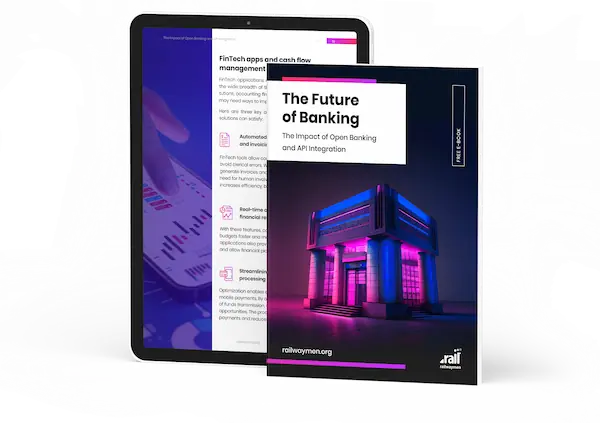In today's rapidly evolving financial landscape, the intersection of finance and technology, known as fintech, has revolutionized the way financial services are delivered. Fintech companies, from established institutions to disruptive startups, are embracing cutting-edge technologies to enhance customer experiences, drive operational efficiency, and unlock new opportunities. Among these technologies, cloud computing has emerged as a game-changer, offering unparalleled scalability, agility, and cost-effectiveness.
Throughout this article, we will delve into the key advantages of cloud technologies for fintech development, including enhanced security measures, seamless scalability, reduced infrastructure costs, and improved data accessibility. We will also discuss real-world examples of how leading fintech companies have successfully embraced the cloud to achieve their business objectives. Moreover, we will examine the potential challenges associated with cloud adoption in the fintech space and offer practical strategies to overcome them.
Table of Contents:
Overview of Cloud Technologies in FinTech
Cloud technologies have revolutionized the way businesses operate, and the fintech industry is no exception. Fintech, which mixes financial services with cutting-edge technology, relies significantly on safe and scalable infrastructure to provide clients with innovative solutions. Cloud technologies provide various benefits that make them an ideal fit for finance firms.
Instead of relying on on-premises infrastructure, cloud technology in fintech entails the use of remote servers housed on the internet to store, manage, and process data. This move to the cloud has several major advantages for fintech organizations, including greater security, smoother scalability, lower infrastructure costs, and improved data accessibility.

Advantages of Cloud Technologies for FinTech
Cloud technologies provide several benefits to fintech organizations, allowing them to improve operations, scalability, and efficiency.
Cloud technologies offer numerous advantages for fintech companies, enabling them to enhance their operations, improve scalability, and increase efficiency.
-
Cost Savings: Cloud technologies allow FinTech companies to avoid the substantial upfront costs associated with building and maintaining physical infrastructure.
-
Scalability: Fintech companies often experience fluctuating demand and growth. Cloud technologies offer scalability, allowing businesses to rapidly scale their infrastructure up or down based on demand.
-
Agility and Speed: Cloud technologies enable companies to innovate and bring new products and services to market faster.
-
Data Security and Compliance: Cloud providers invest heavily in security measures and have robust infrastructure to protect data. They often employ advanced security features, such as encryption, access controls, and threat detection systems.
-
Big Data and Analytics: Fintech companies deal with large volumes of financial data. Cloud technologies provide scalable storage and processing capabilities, allowing businesses to efficiently analyze vast amounts of data for insights and decision-making.
-
Global Reach: Cloud technologies enable fintech companies to extend their services globally with minimal effort. By leveraging cloud infrastructure, businesses can quickly deploy their applications in multiple regions, reducing latency and providing a consistent experience to customers worldwide.

Compliance and Regulatory Standards
To maintain data security, privacy, and compliance, financial technology businesses must follow strict norms and regulations. We have provided numerous critical compliance and regulatory requirements linked to cloud technologies in fintech development in this paper.
-
GDPR (General Data Protection Regulation): it is a European Union (EU) regulation that oversees the collecting, processing, and storage of EU individuals' personal data. GDPR requires fintech firms that handle client data to get consent, provide data portability, and apply sufficient security measures.
-
Payment Card Industry Data Security Standard (PCI DSS): it is a global standard developed by major credit card companies to secure cardholder data. To ensure the secure handling of credit card information and the maintenance of a secure infrastructure, fintech firms participating in payment processing must comply with PCI DSS criteria.
-
Know Your Customer (KYC) and Anti-Money Laundering (AML): AML and KYC rules are intended to combat money laundering, fraud, and terrorist funding. Fintech firms must develop rigorous AML and KYC systems to validate their clients' identities, monitor transactions, and report suspicious activity to regulatory authorities.
-
Securities and Exchange Commission (SEC): Fintech firms that engage in securities offerings, crowdfunding, or digital asset trading must follow SEC laws. Registration requirements, disclosure responsibilities, and investor protection measures are all part of these legislations.
-
Financial Industry Regulatory Authority (FINRA): In the United States, FINRA regulates broker-dealers and securities businesses. Fintech firms that provide brokerage or financial services must follow FINRA laws, which cover topics including registration, advertising, and consumer protection.
-
ISO Standards: The International Organization for Standardization (ISO) has created a number of standards relevant to information security and cloud computing. To secure the security and integrity of their cloud-based systems, fintech organizations may use ISO 27001 (Information Security Management System) and ISO 27017 (Cloud Security).

FinTech companies must completely comprehend the appropriate compliance and regulatory norms in their target markets. To maintain continued compliance, they should develop internal rules, install essential security measures, perform frequent audits, and remain up to speed on regulatory changes. To negotiate the complicated environment of compliance, it is strongly suggested to consult legal and regulatory specialists who are experienced with fintech and cloud technologies.
Challenges of Cloud Adoption in the FinTech Space
While cloud adoption has significant advantages for the finance sector, it also has several problems that must be addressed. The following are some of the major obstacles related to cloud adoption in the fintech space:
-
Data Security and Privacy: Storing and processing data in the cloud necessitates stringent security safeguards to avoid unwanted access or data breaches.
-
Regulatory Compliance: As noted in the last response, fintech businesses are subject to a variety of regulatory regulations. When using cloud technology, they must guarantee that the cloud service provider (CSP) meets all regulatory requirements. This includes evaluating the CSP's security policies, data governance processes, and contractual agreements to ensure compliance.
-
Performance: To provide real-time services, fintech apps demand low-latency and high-performance computing capabilities. The use of cloud infrastructure raises issues about network connection, possible bottlenecks, and shared resources, all of which can have an influence on application performance.
-
Cost Management: While cloud adoption provides scalability and cost-efficiency, it also poses possible cost-management difficulties. To minimize unforeseen costs, fintech organizations must closely monitor and manage their cloud resource utilization.
-
Business Continuity: Cloud outages and service disruptions can significantly impact fintech operations, leading to financial losses and reputational damage. Fintech companies need to implement robust business continuity and disaster recovery plans to mitigate such risks.

To address these issues, a complete solution encompassing a mix of technological, operational, and organizational initiatives is required. Fintech firms should collaborate closely with professional IT teams, cloud service providers, and regulatory experts to establish a strong cloud strategy that tackles these issues while harnessing the benefits of cloud technology.
Strategies to Overcome Cloud Adoption Challenges
To overcome the challenges associated with cloud adoption in the fintech space, consider implementing the following strategies:
-
Risk Assessment: Conduct a complete risk assessment to identify possible security, compliance, and operational issues connected with cloud adoption.
-
Specific Security and Compliance Policies: Create strong security and compliance procedures that adhere to industry norms and laws.
-
Reliable and Compliant Cloud Service Providers: Choose cloud service providers (CSPs) with a proven track record in the fintech business, as well as those that can demonstrate compliance with relevant legislation, and assess their security measures, data protection procedures, certifications, and audit reports.
-
Strong Data Governance and Privacy Measures: Establish robust data governance practices to ensure proper data classification, access controls, and data lifecycle management.
-
Hybrid or Multi-Cloud Architectures: Consider adopting one of those approaches to mitigate vendor lock-in risks and enhance resilience.
-
Comprehensive Training and Awareness: Provide regular training and awareness programs for your employees to educate them about cloud security best practices, data handling procedures, and regulatory compliance requirements.

By implementing these techniques, fintech companies can traverse the hurdles of cloud adoption and establish a safe, compliant, and robust cloud infrastructure that supports their business goals while maintaining data security, privacy, and regulatory compliance.
Real-World Examples of Cloud Adoption in FinTech
#CostTracker
An example of a cloud-based solution, as well as the capabilities of accounting systems, is CostTracker. It is an order management system that uses artificial intelligence mechanisms with an accounting module and allows you to download invoice data from the accounting system selected by the application and match them to individual orders. In addition, CostTracker prepares invoices and delivers them to the accounting system indicated by the user.![]()
#FreshPay
FreshPay is a payroll administration solution that enables to settle payslips in accordance with British legislation. The tool's primary function is to help accountants operate their businesses more efficiently and readily scale.
.jpg?width=1200&height=689&name=freshpay-a4ecc04075591fb24a49bce%20(2).jpg)
For more details on both solutions, see the Case Studies section of Railwaymen's website.
Conclusion
Leveraging cloud technologies has become increasingly essential for FinTech development. The benefits of adopting cloud solutions in the industry are vast, including scalability, cost-efficiency, flexibility, and access to cutting-edge technologies. By migrating to the cloud, companies based on financial technology can streamline their operations, accelerate time to market, and enhance customer experiences.
Cloud technologies provide a solid foundation for development, enabling organizations to adapt to evolving market demands, drive digital transformation, and stay competitive in the fast-paced world of financial technology.
We, at Railwaymen, specialize in Cloud Technologies as well as FinTech software development, so if you have any project in mind, contact us today or estimate your project with us within 48 hours!
ESTIMATE YOUR PROJECT WITH US WITHIN 48 HOURS!
It's time to explore the future of banking
Are you interested in the future of banking and how it will affect your business? Our e-book "The Future of Banking: The Impact of Open Banking and API Integration" provides a detailed analysis of these changes. With thought-provoking insights and expert analysis, you will be able to prepare for the challenges and opportunities ahead.
DOWNLOAD NOW






